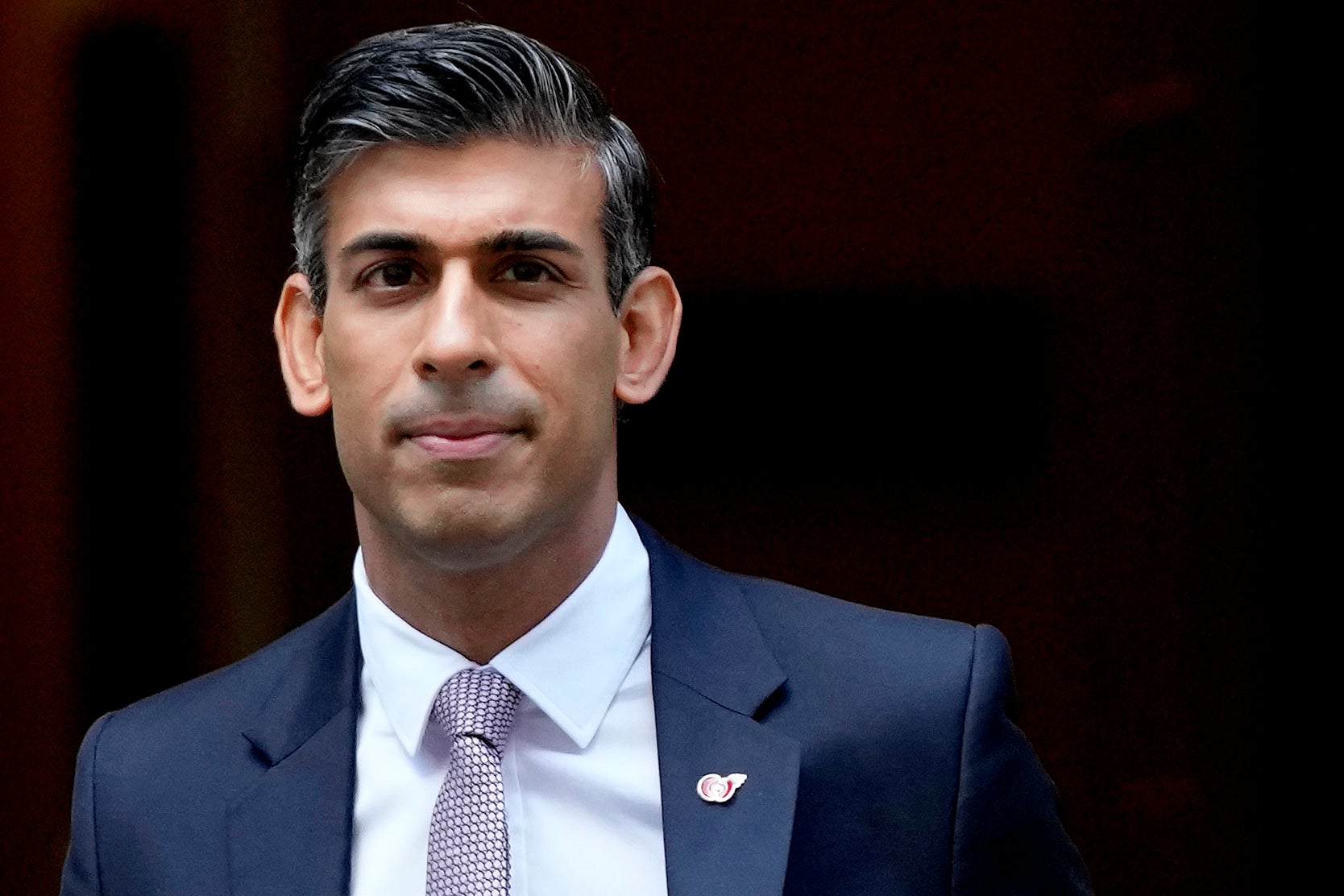Keir Starmer has zeroed in on Rishi Sunak’s weak spot
The leader of the opposition is wise to echo Tony Blair’s attack on John Major, writes John Rentoul


Rishi Sunak is still at the early stage of his premiership, when the opposition is testing him, probing for his weaknesses, trying to get the measure of him. One line that won’t work, it was confirmed today, is accusing him of being rich.
Keir Starmer didn’t take that line of attack. He pursued what may turn out to be a more effective approach, of calling Sunak weak for appointing Gavin Williamson, who resigned last night.
But two Labour backbenchers tried to make an issue of the prime minister’s wealth. Karl Turner asked Sunak what he would do if someone in his “many households” became unwell. Would he get on the phone at 8am to try to get a GP appointment, go to A&E and wait 12 hours, call an ambulance which wouldn’t come, or use some of his £750m “unearned wealth” to go private and “see somebody there and then”?
Sunak responded decorously, praising his local NHS hospital in Yorkshire, which had “provided excellent care to my family over the years”, and saying Turner was “right” to raise the serious issue of unacceptably long waits for treatment, which he said the government was working hard to reduce.
Then Liam Byrne asked why “one of the richest men in Britain” refused to scrap the £3bn tax break for non-doms who “profit from our country but won’t make our country their home”. Sunak was a little sharper in responding to that one, pointing out that Byrne was the author, as outgoing chief secretary to the Treasury, of the “there is no money” note left by the last Labour government.
I don’t know if Turner and Byrne were operating as deniable outriders for Starmer in testing lines that the Labour leader didn’t want to deploy himself, but if so the result of the test was a fail. Their questions struck a sour note, and all the evidence from opinion polls and focus groups is that swing voters tend to see Sunak’s wealth as a positive, suggesting not only that he is competent and successful but also that he is incorruptible.
That may be why Starmer himself wisely stuck to a line he has used before, echoing Tony Blair’s attack on John Major, that he is the weak leader of a divided party. Starmer devoted most of his questions to the subject of the former minister without portfolio. Some of this was a waste of time, because the point about a minister who has resigned is that he isn’t a member of the government any more.
When Starmer asked Sunak if he regretted his decision to appoint him in the first place, the prime minister cheerfully disowned his recent colleague: “I obviously regret appointing someone who has had to resign in these circumstances.” He even tried to claim some credit for dealing with Gavin Williamson’s lapse in standards “properly”.
Only then did Starmer drive home his advantage, accusing Sunak of being the kind of “boss who is so weak and so worried that the bullies will turn on him that he hides behind them”, suggesting that Williamson had been appointed because the prime minister was afraid of him.
The attack was delivered with less than lethal rhetorical force, however, because Starmer continues to read out his questions. Indeed, this question seemed so unthreatening that Sunak appeared unaware that the Labour leader had finished asking it, and that it was now his turn to speak. He had to be prompted by Dominic Raab, his deputy, to his right and tapped on the shoulder by a parliamentary private secretary from the row behind. He got up, repeated that integrity matters and said the government’s focus was on stabilising the economy, dealing with NHS backlogs and tackling illegal immigration.
To keep up to speed with all the latest opinions and comment, sign up to our free weekly Voices Dispatches newsletter by clicking here
However, Sunak does have to worry. Few voters know about what Gavin Williamson said to whom, but they have absorbed a general impression that Conservative MPs don’t like each other and that the party is divided.
Sunak has a Blair-like way of smoothing over political animosities. He was at it again today in reply to Ian Blackford, the Westminster leader of the Scottish National Party, looking forward to “working constructively” with Nicola Sturgeon, the first minister of Scotland, at their meeting tomorrow. One of the reasons Williamson was given a seat at the cabinet table was Sunak’s attempt to bind in all factions of the Tory party.
But the Tory divisions run deep, and in difficult economic times, it will be hard for Sunak to hold the line. Many of Liz Truss’s supporters continue to believe that she was right, and will complain bitterly about the autumn statement next week. I find their refusal to accept the result of a conclusive real-world experiment baffling, but that is not the point.
The Tories may be too divided to save themselves, and Starmer’s attack on Sunak for being “weak, weak, weak” – in Blair’s words against Major – may cut through in the end.






Join our commenting forum
Join thought-provoking conversations, follow other Independent readers and see their replies
Comments